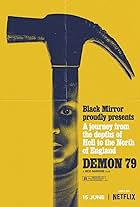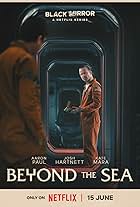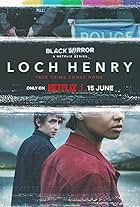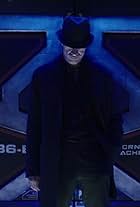
Ozero_Zaisan
Joined Sep 2013
Welcome to the new profile
We're still working on updating some profile features. To see the badges, ratings breakdowns, and polls for this profile, please go to the previous version.
Ratings1.8K
Ozero_Zaisan's rating
Reviews33
Ozero_Zaisan's rating
The Godfather: Part II" is not merely a sequel-it is the grand expansion of a legend, and perhaps one of the few films that surpasses its predecessor in depth, complexity, and moral dissection. Released in 1974, Francis Ford Coppola's continuation of the Corleone saga doesn't merely extend the story-it dives deeper into the underbelly of power, family, and sacrifice, expanding the epic into a sprawling commentary on the American experience.
Where the first film meticulously charted Michael Corleone's fall from reluctant outsider to brutal patriarch, Part II shifts its focus to a dual narrative. On one side, Michael's consolidation of power within the family becomes more ruthless, and on the other, we witness the origin story of Vito Corleone-his rise from an impoverished orphan to the ruthless godfather who would shape his family's future. This dual narrative structure reflects the cyclical nature of power, showing that every generation is both the product and the architect of the previous one.
Technically, the film is an even greater accomplishment than its predecessor. Gordon Willis' cinematography takes the shadowy chiaroscuro of the first film and deepens it, filling the frames with an almost suffocating tension. Every shot is deliberate, each composition perfectly capturing the contrast between the intimate and the institutional, the personal and the political. The editing is precise, blending the two timelines in a seamless, almost hypnotic fashion, while Nino Rota's iconic score-again, tinged with melancholy-sings the elegy of a family lost to its own power.
What makes Part II even more prophetic than the original is its exploration of the self-destructive nature of power. Michael Corleone's increasing isolation-both emotionally and physically-reflects the price of ambition. He is surrounded by wealth, respect, and control, yet the more he gains, the more he loses. The film deftly reveals the fragility of even the most powerful men and institutions. It challenges the viewer to ask: How far can you go to preserve your empire before you lose yourself completely?
In an age where digital dynasties and tech oligarchs are the modern-day Corleones, The Godfather: Part II remains hauntingly relevant. The way Michael manipulates political connections, influences the justice system, and asserts dominance over his enemies feels eerily familiar to how power operates in today's world-where data is weaponized, loyalty is bought, and institutions are hollowed out in pursuit of control.
More than just a film about a crime family, The Godfather: Part II is a film about the architecture of power itself. It's about what happens when the rules of society are bent to their breaking point-when loyalty and morality become secondary to survival and success. It's a timeless meditation on the cost of greatness and the human toll of ambition.
Like its predecessor, The Godfather: Part II is a tragic masterpiece that doesn't just entertain-it reveals the dark side of the American Dream. It doesn't offer redemption, but a quiet, inescapable warning: power may corrupt, but it is isolation that destroys.
Where the first film meticulously charted Michael Corleone's fall from reluctant outsider to brutal patriarch, Part II shifts its focus to a dual narrative. On one side, Michael's consolidation of power within the family becomes more ruthless, and on the other, we witness the origin story of Vito Corleone-his rise from an impoverished orphan to the ruthless godfather who would shape his family's future. This dual narrative structure reflects the cyclical nature of power, showing that every generation is both the product and the architect of the previous one.
Technically, the film is an even greater accomplishment than its predecessor. Gordon Willis' cinematography takes the shadowy chiaroscuro of the first film and deepens it, filling the frames with an almost suffocating tension. Every shot is deliberate, each composition perfectly capturing the contrast between the intimate and the institutional, the personal and the political. The editing is precise, blending the two timelines in a seamless, almost hypnotic fashion, while Nino Rota's iconic score-again, tinged with melancholy-sings the elegy of a family lost to its own power.
What makes Part II even more prophetic than the original is its exploration of the self-destructive nature of power. Michael Corleone's increasing isolation-both emotionally and physically-reflects the price of ambition. He is surrounded by wealth, respect, and control, yet the more he gains, the more he loses. The film deftly reveals the fragility of even the most powerful men and institutions. It challenges the viewer to ask: How far can you go to preserve your empire before you lose yourself completely?
In an age where digital dynasties and tech oligarchs are the modern-day Corleones, The Godfather: Part II remains hauntingly relevant. The way Michael manipulates political connections, influences the justice system, and asserts dominance over his enemies feels eerily familiar to how power operates in today's world-where data is weaponized, loyalty is bought, and institutions are hollowed out in pursuit of control.
More than just a film about a crime family, The Godfather: Part II is a film about the architecture of power itself. It's about what happens when the rules of society are bent to their breaking point-when loyalty and morality become secondary to survival and success. It's a timeless meditation on the cost of greatness and the human toll of ambition.
Like its predecessor, The Godfather: Part II is a tragic masterpiece that doesn't just entertain-it reveals the dark side of the American Dream. It doesn't offer redemption, but a quiet, inescapable warning: power may corrupt, but it is isolation that destroys.
The Godfather" is not merely a film-it is the cinematic equivalent of scripture. Directed with near-religious precision by Francis Ford Coppola, this 1972 magnum opus transcends its gangster genre trappings to become a sweeping meditation on power, loyalty, identity, and the corruptive gravity of legacy. It is, quite simply, a masterclass in narrative architecture, tonal control, and myth-making.
From a technical standpoint, the film is a symphony of visual and auditory restraint. Gordon Willis' chiaroscuro lighting-earning him the nickname "The Prince of Darkness"-imbues every frame with tension, secrecy, and moral ambiguity. Nino Rota's score doesn't just accompany the film; it mourns it. The editing, the production design, and the blocking are all executed with the discipline of a military operation, serving not spectacle, but mood and meaning.
But beneath the aesthetic lies the soul of the story: The Godfather is a Shakespearean tragedy wearing a tailored suit. Michael Corleone's arc-from reluctant outsider to cold-blooded patriarch-is one of the most chilling transformations in cinema, not because it's forced, but because it feels inevitable. The film dissects the myth of the self-made man, revealing the rot beneath the empire he inherits.
What's prophetic about The Godfather is its portrayal of systemic power as familial, hereditary, and inescapably violent. In a world now run by corporate dynasties, political bloodlines, and algorithmic empires, the Corleone family's quiet handshakes and whispered betrayals feel hauntingly contemporary. The boardrooms have changed, but the rules haven't: loyalty is a currency, weakness is a liability, and the system always wins-unless you become it.
More than 50 years later, The Godfather is still the film that every serious director bows to and every institution secretly fears. It is art that not only entertains, but indicts. It asks: At what point does power stop being protection and become pathology? And how much of your soul must you forfeit to preserve your name?
This is not just cinema-it is legacy, fate, and consequence, distilled into 175 minutes of perfection.
From a technical standpoint, the film is a symphony of visual and auditory restraint. Gordon Willis' chiaroscuro lighting-earning him the nickname "The Prince of Darkness"-imbues every frame with tension, secrecy, and moral ambiguity. Nino Rota's score doesn't just accompany the film; it mourns it. The editing, the production design, and the blocking are all executed with the discipline of a military operation, serving not spectacle, but mood and meaning.
But beneath the aesthetic lies the soul of the story: The Godfather is a Shakespearean tragedy wearing a tailored suit. Michael Corleone's arc-from reluctant outsider to cold-blooded patriarch-is one of the most chilling transformations in cinema, not because it's forced, but because it feels inevitable. The film dissects the myth of the self-made man, revealing the rot beneath the empire he inherits.
What's prophetic about The Godfather is its portrayal of systemic power as familial, hereditary, and inescapably violent. In a world now run by corporate dynasties, political bloodlines, and algorithmic empires, the Corleone family's quiet handshakes and whispered betrayals feel hauntingly contemporary. The boardrooms have changed, but the rules haven't: loyalty is a currency, weakness is a liability, and the system always wins-unless you become it.
More than 50 years later, The Godfather is still the film that every serious director bows to and every institution secretly fears. It is art that not only entertains, but indicts. It asks: At what point does power stop being protection and become pathology? And how much of your soul must you forfeit to preserve your name?
This is not just cinema-it is legacy, fate, and consequence, distilled into 175 minutes of perfection.
12 Angry Men" is a masterclass in minimalist filmmaking, intellectual rigor, and moral clarity. Directed by Sidney Lumet in 1957, the film confines itself almost entirely to a single room, yet manages to construct a courtroom of ideas, where logic wrestles with bias, and reason goes to war with prejudice. It is a quiet, cerebral thriller that makes no use of explosions or car chases, yet detonates internally with every line of dialogue.
From a technical perspective, the film is an exercise in pure cinematic economy. The deliberate camerawork evolves with the emotional arc-beginning with wide shots that emphasize isolation, and gradually tightening into claustrophobic close-ups as tension escalates. This visual strategy mirrors the thematic compression of the narrative: the squeezing of each juror's assumptions until only truth remains. Lumet's direction is so precise, it could be taught in philosophy departments as much as film schools.
But the real genius of 12 Angry Men lies in its enduring relevance. In an age of AI-assisted sentencing, algorithmic bias, and real-time social judgment, the film's core question-Can one voice of reason hold the line against a tide of systemic indifference?-rings louder than ever. Juror #8 isn't just a character; he's the prototype for ethical resistance in a world increasingly driven by speed, not reflection.
In a society obsessed with binary conclusions-guilty/innocent, left/right, signal/noise-12 Angry Men reminds us that justice is not found in the quick click of a verdict, but in the messy, human work of doubt, patience, and principled dialogue. The film champions critical thinking, empathy, and the slow burn of persuasion over the easy seduction of certainty.
Simply put, 12 Angry Men is a civic sermon disguised as a legal drama. Its quiet power has only grown with time. In today's era of polarization and post-truth, it doesn't feel like a film from the past-it feels like a warning from the future.
From a technical perspective, the film is an exercise in pure cinematic economy. The deliberate camerawork evolves with the emotional arc-beginning with wide shots that emphasize isolation, and gradually tightening into claustrophobic close-ups as tension escalates. This visual strategy mirrors the thematic compression of the narrative: the squeezing of each juror's assumptions until only truth remains. Lumet's direction is so precise, it could be taught in philosophy departments as much as film schools.
But the real genius of 12 Angry Men lies in its enduring relevance. In an age of AI-assisted sentencing, algorithmic bias, and real-time social judgment, the film's core question-Can one voice of reason hold the line against a tide of systemic indifference?-rings louder than ever. Juror #8 isn't just a character; he's the prototype for ethical resistance in a world increasingly driven by speed, not reflection.
In a society obsessed with binary conclusions-guilty/innocent, left/right, signal/noise-12 Angry Men reminds us that justice is not found in the quick click of a verdict, but in the messy, human work of doubt, patience, and principled dialogue. The film champions critical thinking, empathy, and the slow burn of persuasion over the easy seduction of certainty.
Simply put, 12 Angry Men is a civic sermon disguised as a legal drama. Its quiet power has only grown with time. In today's era of polarization and post-truth, it doesn't feel like a film from the past-it feels like a warning from the future.































